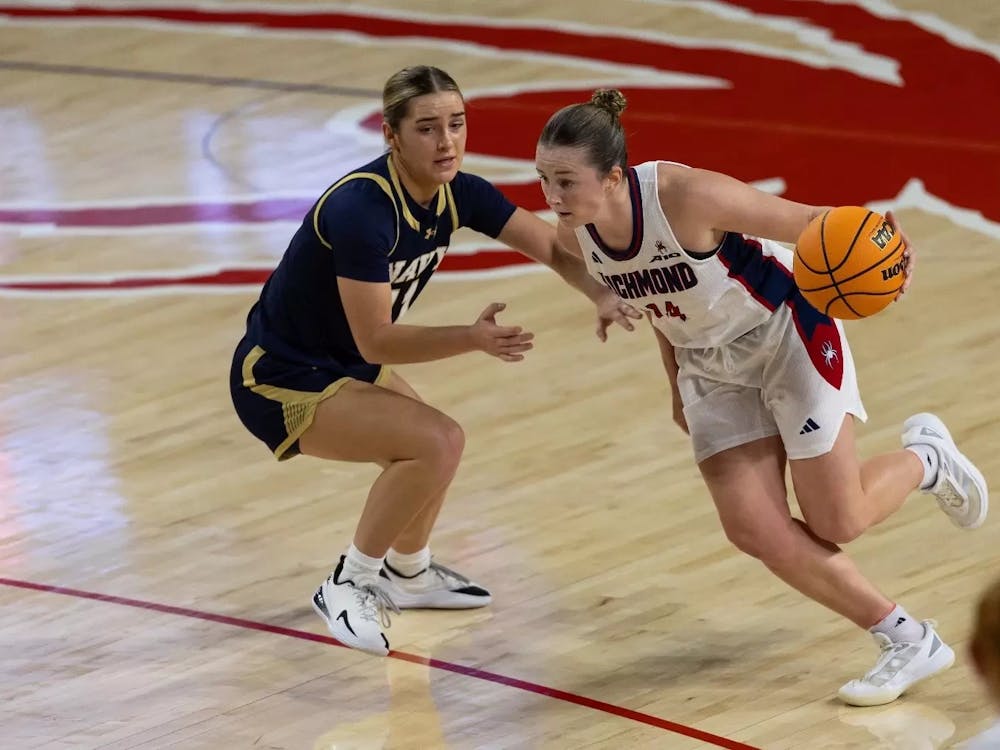A new set of Honor Code statutes will go into effect this semester, following an unanimous vote from the undergraduate Honor Council.
For the past three years, the Honor Council has worked alongside Westhampton College Dean Mia Reinoso Genoni, Richmond College Dean Joe Boehman and the Undergraduate Academic Integrity Committee to revise the structure of the hearing process and the formatting of the Honor System Handbook.
“All the revisions were based on student and faculty feedback,” Genoni said.
Senior Jacob Queller, former Honor Council chairman of Richmond College , and professor of management Thomas Mattson, chairman of the Undergraduate Academic Integrity Committee, cited student and faculty confusion over the existing document as a reason for the changes.
“In the past, our Honor Council statues had been about 55 pages," Queller said. "We’re now going down to about 20 pages just so it’s a little more understandable for students who have been accused of an Honor Council violation or faculty members when they have questions."
The previous version of the Honor Code had become hard to understand, Mattson said.
"As the documents kind of morphed and grew over time, it became unmanageable for faculty to understand exactly what was happening," Mattson said.
The changes will remove 31 pages of appendices. Failure to report an Honor Council violation and disclosure of Honor Council information will also no longer be considered violations.
In the past, students who were aware of a fellow student’s misconduct and did not report the person to the Honor Council would have had to go through the hearing process and could potentially have been found guilty. Additionally, if any student disclosed information about any case, they could also have had to go through the hearing process.
“We’ve [Honor Council] taken that [failure to report] out because we’ve never really used it," Queller said. "We haven’t charged someone with it in a long time so it’s something that we feel is not necessary to have anymore.”
A violation now titled "Honor Council interference" will replace disclosure, meaning that an accused student who tries to rig the jury in their favor or intimidate any involved party in the case could be charged with another violation, Queller said.
The Honor Council's executive board also faced changes. Two investigators from each college will substitute the position of marshal. The role of the investigators will be to meet with the accuser and present a report at the pre-hearing.
Enjoy what you're reading?
Signup for our newsletter
Additionally, the Honor Council made two changes during last semester that are part of the restructuring of the system: expedited hearings and the elimination of the deliberation of academic sanctions from the Honor Council.
In regard to the hearing process, accused students will now have the option to opt for an expedited hearing by admitting responsibility. Previously, students had to go through two preliminary hearings and a full hearing before being found guilty or not guilty.
“The expedited hearing option is going to be better for everyone,” Genoni said.
At the end of the hearings, the Honor Council would previously deliberate on two sanctions, academic and disciplinary. Under the new statues, Honor Council members will no longer have the power to decide guilty students’ grade sanctions. The onus will be placed on the professors, who will now have to submit a grade recommendation along with an affidavit.
“When we did Honor Council hearing boards, we were spending probably around 75% of our time trying to figure out what an appropriate grade sanction was instead of working on, 'Is the student guilty or not?'” Queller said.
Genoni further elaborated on this change.
“It [the grade sanction] was always the professor’s decision, but now we’ve taken out the part of Honor Council deliberation," she said.
Another change directly related to faculty is the Undergraduate Academic Integrity Committee’s advisory role, which has been written into the Honor Code.
“We wanted the revision to be a collaborative process, and for the Honor Council to feel like they have a resource on the faculty," said Andrea Waddle, a member of the committee. "So that’s been written into the code."
A PDF version of the new Honor Code can be found here.
Contact news writer Jackie Llanos Hernandez at jackie.llanoshernandez@richmond.edu.
Support independent student media
You can make a tax-deductible donation by clicking the button below, which takes you to our secure PayPal account. The page is set up to receive contributions in whatever amount you designate. We look forward to using the money we raise to further our mission of providing honest and accurate information to students, faculty, staff, alumni and others in the general public.
Donate Now



